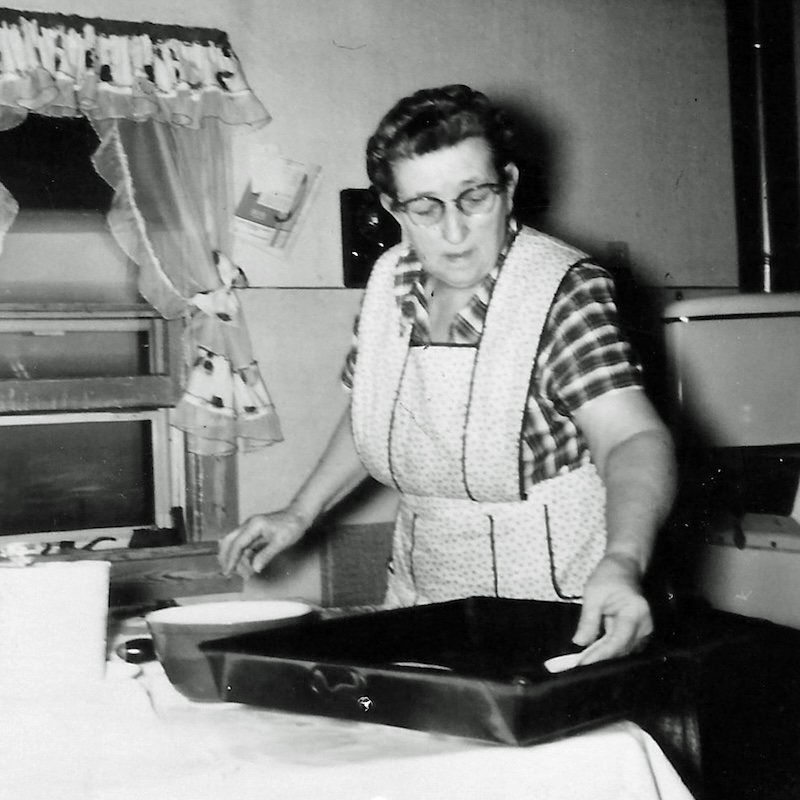July/Aug 2024 (Volume 16, Issue 4)
By Arvid Huisman
It will soon be 44 years ago since we said “good-bye” to my maternal grandmother, Oma Gelder. After a long and fruitful life, Oma just plain wore out.
Like most of us, I loved all my grandparents. Oma Gelder, however, was special. She wasn’t perfect; she had her human flaws.
Oma had nearly 50 grandchildren, yet I always felt like I was one of her “pets.” Perhaps that was her secret — maybe she made each of her grandkids feel like one of her “pets.”

Oma Gelder in her kitchen.
As I’ve grown older, I have come to realize why Oma was so special to me. It was the inheritance she left me. Please allow me to elaborate:
Born in the Netherlands in 1898, Oma came to the United States as a six-year-old girl. She told me about the trip across the Atlantic Ocean, about being laughed at by New Yorkers as she and her little sister walked down a big city sidewalk in their wooden shoes, about the long train ride to Iowa, and about her new home in Hamilton County.
Oma was born into poverty and never accumulated any wealth. Her childhood ended abruptly when she married at the tender age of 15. Motherhood soon followed. The Great Depression came and so did more babies. Over a period of 25 years she gave birth to 13 babies, nearly dying during several of the later pregnancies and deliveries.
In a move that was not so unusual at the time but is inconceivable today, her children were hired out to area farm families. Initially, the children were hired out during the summer. After my mother completed eighth grade, she was a live-in, hired girl for an area farm family.
During World War II Oma had five sons in military service at one time. One of them never came home; Uncle Arnold died in the invasion of Sicily. A few years later, she nearly lost Opa to a massive heart attack.
From my earliest recollections, Oma appeared old. Her Old-World attire and hairstyle made her look older. It’s difficult to remember her without a colorful apron covering the front of her short, stout frame.
Despite her appearance, however, Oma didn’t act old. Mind you, she didn’t come outside and play baseball with us grandkids. It was her sense of humor that made her seem younger. When Oma started laughing, her entire body began jiggling, reminiscent of Clement Moore’s description of Santa Claus in his famous Christmas poem. Her laughter turned to a cackle as she wiped the tears from her eyes with a flowery hanky. The more Oma joked and laughed, the younger she seemed.
TO READ THE ENTIRE STORY AND OTHER FASCINATING STORIES ABOUT IOWA HISTORY, subscribe to Iowa History Journal.
